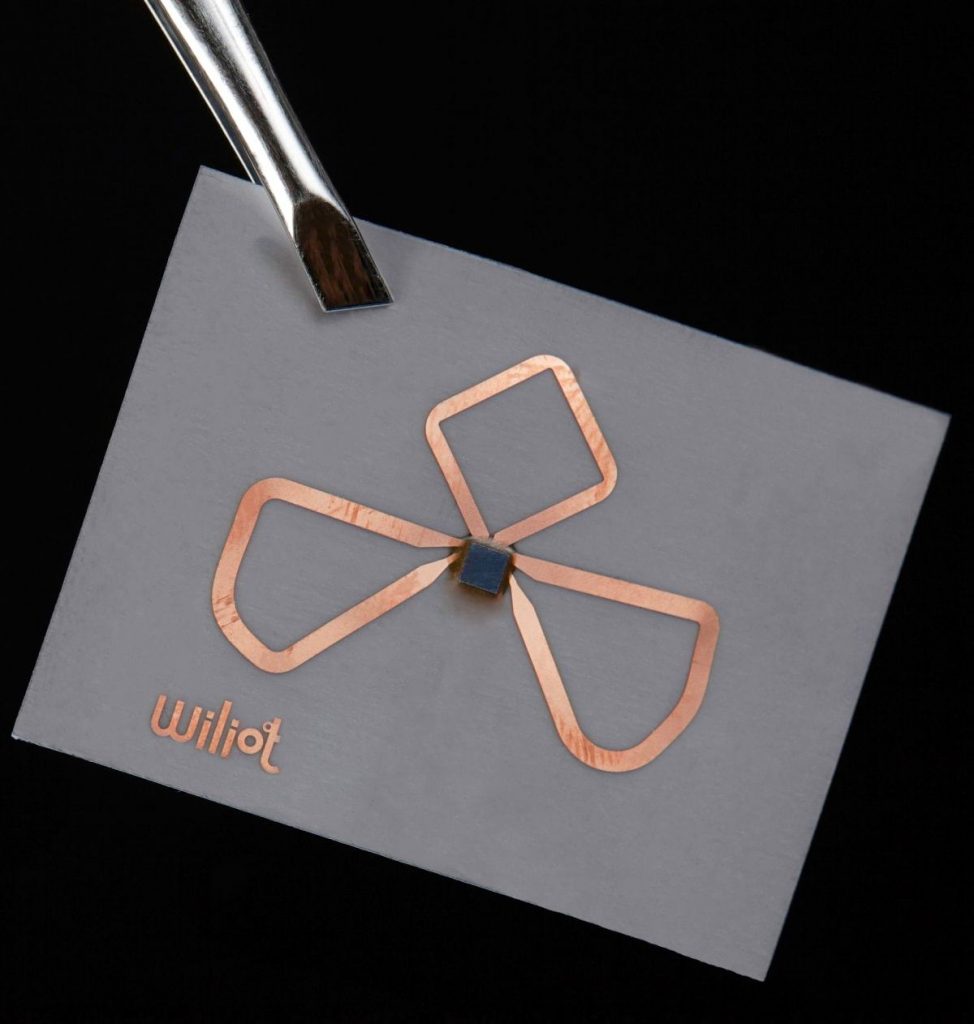
Wilito, which is a semiconductor pioneer has raised a $30 million series B for a total of $50 million in funding. This comes after the company’s demonstration of the first-ever sticker-sized Bluetooth sensor tag incorporating an ARM processor powered solely by scavenging energy from ambient radio frequencies.
A Wiliot chip glued to a simple antenna printed on plastic or paper can authenticate the proximity of a product by transmitting an encrypted serial number along with weight and temperature data from a device the size of a postage stamp. The tags use Wiliot’s nanowatt computing to communicate with any device enabled by Bluetooth Low Energy, such as smartphones, Wi-Fi access points, and Internet of Things (IoT) devices that can connect to digital displays, Wi-Fi and LTE cellular networks.
Wiliot closed its Series B round of funding with Amazon Web Services (AWS) Investment Arm, Samsung Venture Investment Corp., and Avery Dennison. These organizations have joined Norwest Venture Partners, 83North, Grove Ventures, Qualcomm Ventures, and M Ventures to raise an additional $30 million of funding. Bluetooth tags can be embedded in the production phase of consumer goods, allowing real-time tracking through the manufacturing process, to the warehouse and from the store to the end consumer—all while being sensed for critical information.
Bluetooth tags can be embedded in the production phase of consumer goods, allowing real-time tracking through the manufacturing process, to the warehouse and from the store to the end consumer. At the retail level, the Wiliot transponder can overcome the limits of human-readable product information on tags or packaging, unlocking interactive engagement through the consumer’s own phone or displays.
Tal Tamir, Wiliot CEO and co-founder said:
We believe that disposable electronics based on battery-free, low-cost systems are the foundation for future IoT systems. We are on the edge of dramatically changing the way products are made, how they are distributed, where and when they are sold, and how they are used and recycled. Re-cycling the radiation around us to power sticker-size sensors can enable new ways for consumers to interact with products that were previously not feasible. Products can share when they are picked up, their temperature, or when they need to be replenished. Without batteries or other high-cost components, tags have unlimited power and lifespan, so can be embedded inside of products that were previously unconnected to the Internet of Things.
Francisco Melo, VP & GM, Global RFID, Avery Dennison said:
Wiliot’s strategy for battery-free Bluetooth transponders, which sense and communicate without needing specific action by consumers, is very relevant to Avery Dennison’s intelligent label strategy. We believe in a future where every item will have a unique digital identity and a digital life, benefiting both consumers and brands, with relevant and contextual information. We see this as an extension to our world-leading RFID solutions, enabling consumers to connect with products through multiple smartphone and IoT devices from end to end.
